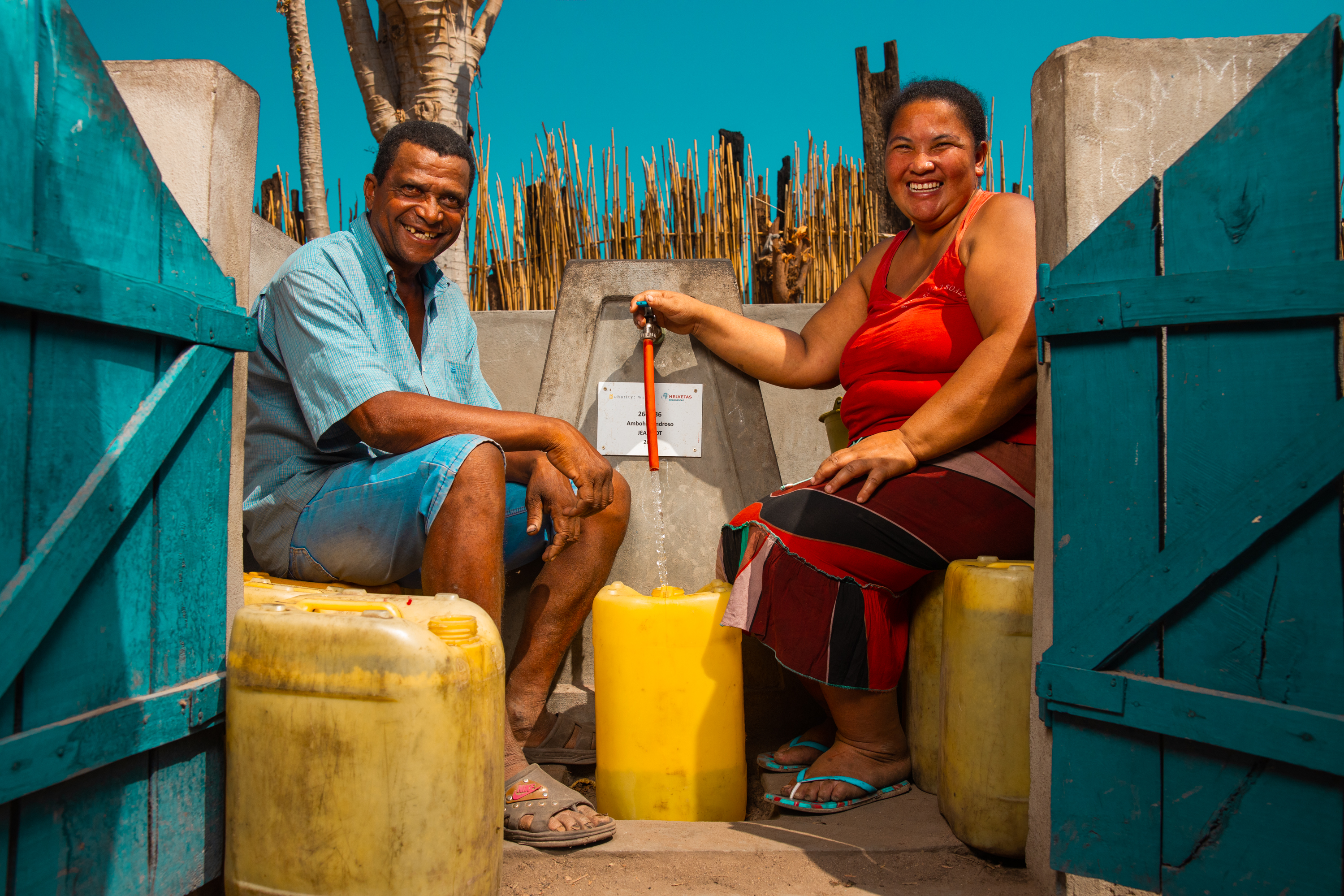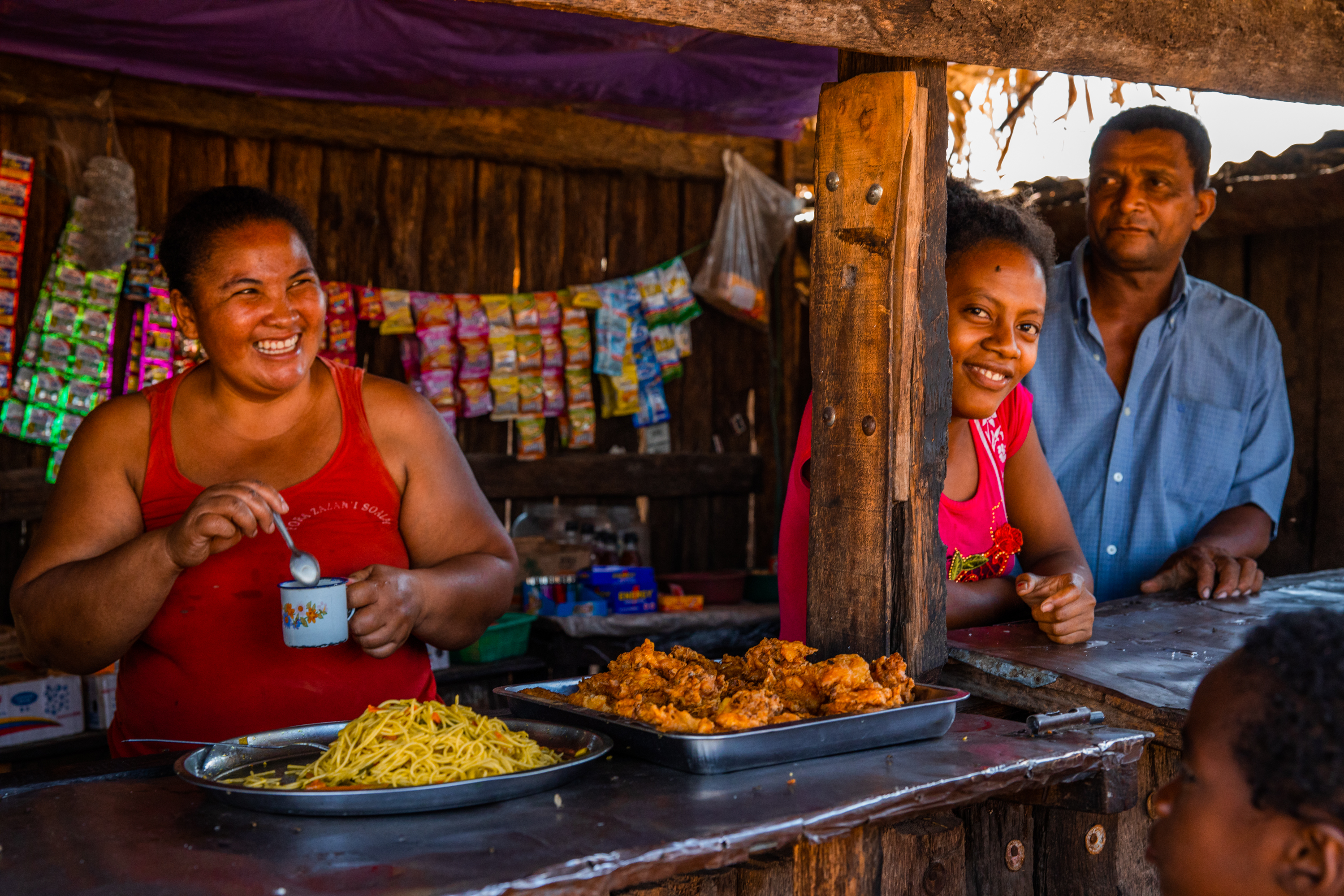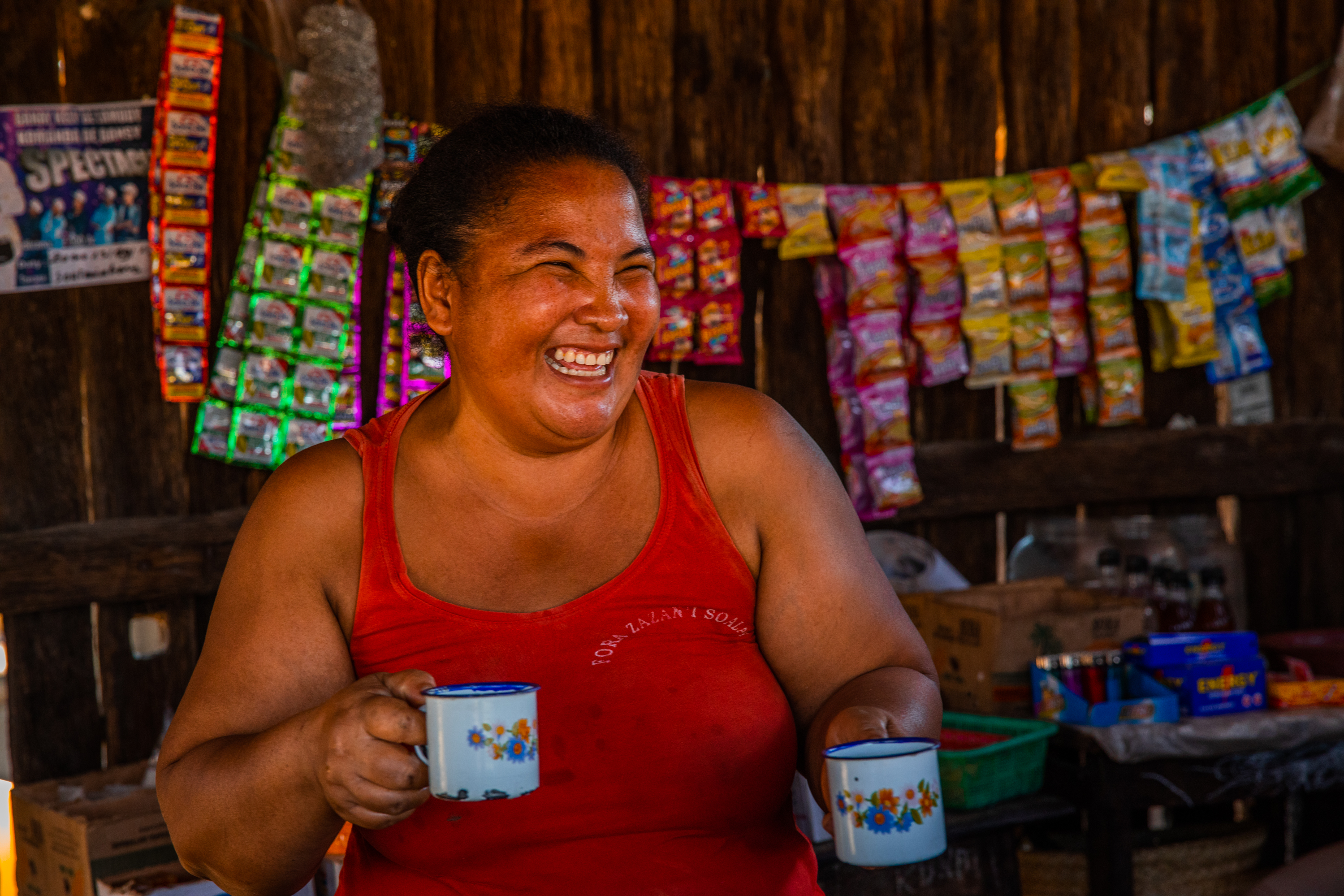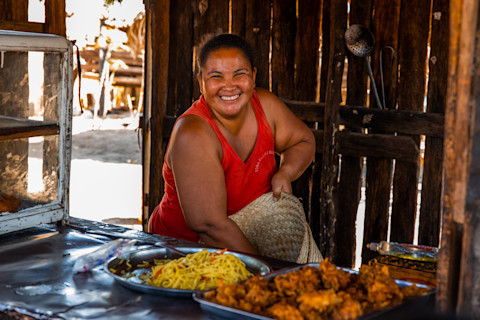Honorine didn’t always have clean water, but she did always have joy. It radiated in her wide smile and contagious laugh.
“It’s been my habit since I was a child. It’s a part of my character. Maybe it’s just my talent.”
Honorine’s hope was forged through difficulty. For years, dirty water made life challenging for her community in rural Madagascar.
Honorine’s day used to begin at 3:00 in the morning. The journey was taxing both physically and financially. The only water source was several miles away, and Honorine had to pay 500 ariary (around 13¢) for a single 19-liter jerry can.

“Imagine waking up very early in the morning to fetch water, and then going to work in the rice fields on a very hot day,” Honorine said.
Even worse, all of her hard work was for water that consistently made Honorine and her family sick.
“When I got sick,” she told us, “I could not work. That is the real suffering.”
This daily battle meant Honorine and her husband struggled to provide for their family. But then, our local partner, Helvetas, brought clean water to their community.
Honorine remembers that day well. “When the tap was finished, everybody screamed. The children and the adults alike all yelled, ‘The water pump is finished! The water pump is finished!’”
Their joy was only just beginning.
“There was a change here,” Honorine noticed. “Things are less difficult. Our lives got better because of the presence of the water pump. Water gives health.”
Before, the community was constantly blighted by bilharzia, a disease caused by parasites that live in dirty water. These worms grow in the veins and intestines of the drinker, causing permanent organ damage—at times, with fatal results. Since they’ve had clean drinking water, it seems like the disease is gone.
Clean water didn’t just restore health to Honorine and her community. It helped Honorine turn her natural proclivity toward hospitality into a means of income.
In addition to their work in the rice fields, Honorine and her husband ran a small store selling coffee and sugar. For years, dirty water and the sicknesses it brought kept their family business from expanding.

Honorine never imagined developing her small shop into a restaurant. But with clean water, the impossible became possible.
“We’re only able to have a restaurant because there is clean water. We use water more than anything else: up to 10 jerry cans a day just to clean all of the utensils. Before, I never thought about starting a restaurant because water is difficult here. But since the installation of this clean drinking water, we feel blessed.”
Instead of waking up at 3:00am to walk for water, Honorine gets to see her child off to school in the morning. Then, she heads to her restaurant to prepare her famous soup and banana bread.
“As I am a mother, I enjoy taking care of things,” Honorine explained. “When people come here, they talk about their lives. I love welcoming people.”
Many people in Honorine’s community are fishermen. After an early morning and a long day, they head to Honorine’s restaurant to eat and laugh together. There, Honorine greets them with bread, pasta, and some hot tea.
“This restaurant is my job now, and I find it wonderful,” Honorine said with a smile. “We are happy. Really happy.”
Now, the sky’s the limit for Honorine and her business. “I will make my restaurant grow. Although, I am not thinking about [being rich].”
Honorine is satisfied to finally have enough to eat. And with the added income, Honorine is able to save for her children’s school fees.

“The small restaurant greatly improved our lives because now we can enhance our lives. We could pursue studying abroad, our children could get out of here,” Honorine hoped.
Every parent wants better for their children. Bigger dreams. An easier life. For millions around the world, clean water is essential to breaking generational cycles of underdevelopment.
Honorine understands this better than most. When her son was two years old, he contracted an unknown illness in his stomach. He passed away shortly after. Today, Honorine looks back on this period as the darkest time in her life.
“I would be very happy if other people from other places could get water as we did here. It will prevent sickness. It will help people take care of their babies. It will improve people’s lives little by little.”
For Honorine, so-called “little” improvements looked like big changes: a thriving business, a healthy body, and hope for the future. Her story is a testament to the power of access to clean water. It makes waterborne diseases and the dreaded daily walk for water things of the past. But it doesn’t stop there.
Clean water doesn’t just provide access to the rights people were always meant to have, like education, health, or income. __It allows people to be who they were always meant to be. __
It turns mums with a penchant for making others feel loved into entrepreneurs. It turns children with big dreams into students with even bigger potential. It empowers all people—but especially women and girls—with the agency and opportunity they need to build the life they’ve always wanted.
Access to clean water changes everything for rural communities. But even more importantly, it allows people to change everything for themselves. Honorine’s story represents 15,477,278 others you’ve transformed as a charity: water supporter. Thank you for choosing action over apathy and engaging a global crisis affecting 703 million people like Honorine. That choice is changing the world little by little.

